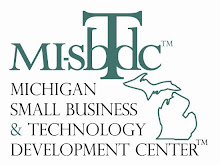
In a statement, Mills noted that SBA moved quickly to get these critical loan dollars in the hands of small businesses and just three months later all of the $505 million in subsidy provided in the Jobs Act to support the loan enhancements has been utilized by the agency’s national network of lending partners. In light of that, the SBA has activated the SBA loan queue to ensure that any remaining funds that result from loan cancellations in the coming weeks are redirected to new Jobs Act loans.
Following is the full statement from Mills:
“In just three months since the Small Business Jobs Act was signed into law, SBA supported more than $12 billion in lending to small businesses and entrepreneurs across the country. SBA is on the front lines with small business owners and our lending partners every single day. I’m very proud that as a result of those close relationships and partnerships we were able to quickly put this significant amount of capital into the hands of our nation’s largest job creation engine.
“The loan enhancements of higher guarantees and reduced fees first implemented as part of the Recovery Act have been a vital resource for tens of thousands of small businesses at a critical time when lending markets had dried up. Beginning in February 2009, these loan enhancements engineered a significant turnaround in SBA lending, including driving record-high levels of SBA lending in recent weeks. The end result is that the agency helped put more than $42 billion in the hands of small businesses through the Recovery Act and Jobs Act combined.
“These enhancements have been a key piece of the Obama Administration’s efforts to help small businesses drive our nation’s economic recovery. As we transition back to our standard guarantees and fee rates, SBA loan programs will continue to play an important role, as they have for decades, in helping entrepreneurs and small business owners start or grow their businesses and create jobs.
“The Small Business Jobs Act is the most consequential piece of legislation affecting small businesses enacted in more than a decade. While we are proud of how quickly SBA could provide $12 billion in capital to small businesses, we remain focused on implementing other key provisions of this law that will continue to expand access to capital, help small businesses compete for federal contracting dollars, strengthen small business exports and provide other critical support.”
During the quarter, SBA approved nearly 22,000 small business loans for $10.47 billion, supporting a total of $12.16 billion in lending. The amounts are greater than the volume for Jobs Act loans over the same period because they exclude some loans that were not eligible for one or more Jobs Act enhancements.
Background on SBA Loan Enhancements:
SBA expands access to capital for small businesses by providing government-guarantees on loans made by commercial lenders. The Small Business Jobs Act extended higher guarantees and reduced fees on its two most popular loan programs, enhancements first enacted in the American Recovery and Reinvestment Act of 2009.
From Feb. 17, 2009, when the Recovery Act was signed, through Sept. 30, 2010, the SBA approved more than $22.5 billion in loan guarantees, which supported more than $30 billion in lending small businesses, due to the loan enhancements put in place by the Act. The enhancements were funded with approximately $680 million in subsidy funds provided during the period.
Following the extension of the enhancements in the Jobs Act, the agency approved an additional $10.3 billion in loan guarantees, supporting more than $12 billion in lending to small businesses from Sept. 27 through Dec. 31, funded by just $505 million in subsidy funds. The three-month extension of the loan enhancements under the Jobs Act financed the highest volume in a fiscal year’s first quarter than at any time in the agency’s history. During the week of Dec. 18-24, SBA supported a record-high $1.95 billion in small business loans, the highest dollar volume since the agency began tracking its weekly loan volumes.
SBA Loan Queue:
Authority to continue the loan enhancements was extended through March 4 by Congress last month. While there is no additional appropriation of subsidy funds to support the loan enhancements, the extended authority does allow the agency to redirect, through the SBA Loan Queue, any dollars that come available from loan cancellations in the coming weeks to new loans with the enhancements.
It is typical that some previously approved loans are later cancelled by the borrower or lender and never disbursed for a variety of reasons. The queue takes this into account and will allow eligible small businesses, in consultation with their lenders, to choose to be placed in the queue for possible approval for a Jobs Act loan if funding becomes available. Small business owners and lenders will have transparent access to the queue via www.sba.gov and will be able to remove themselves from the queue at any time to be considered for a non-Jobs Act SBA-backed loan with all applicable fees and, for 7(a) loans, standard guarantee levels.
Small Business Jobs Act of 2010:
The Small Business Jobs Act included an array of provisions aimed at helping small businesses gain access to capital, compete for federal contracting opportunities, expand exporting opportunities and obtain other assistance to help them grow and create jobs. More information on the Jobs Act can be found at www.sba.gov/jobsact










